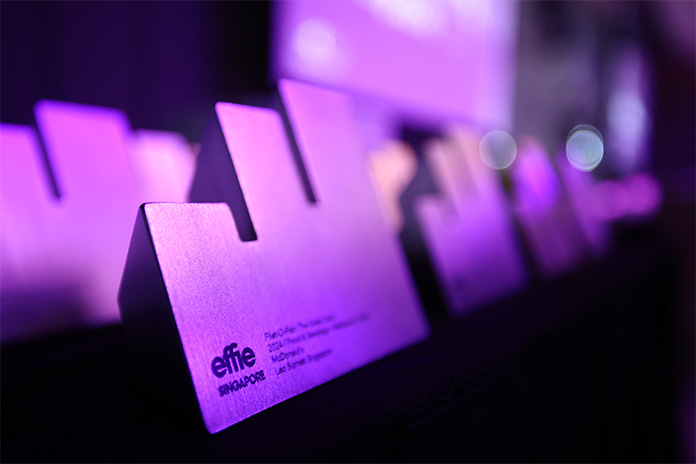
MODERN marketing is a crossover between art, science, and technology.
While individual wizards do exist, most of the best advertisements are a product of interdisciplinary collaboration; industry skills which inherently cannot be learned from any textbook.
Being a marketer requires a mix of experience, knowledge of current trends and a willingness to explore new areas of opportunity. It takes a willing mind and agile reactions to discern how the various moving parts of the industry are evolving, and to anticipate how the targeted audience would react to the messaging.
There are many ways to celebrate a successful campaign. An increase in sales, if it’s about a product, or greater awareness as a result of a smartly crafted statement.
Then there are the awards that celebrate all that is wonderfully creative about this industry.
There are several awards to celebrate excellence in the advertising and marketing industry. They play an important role in allowing agencies to showcase their winning formulas, which, in turn, help raise the standard of the industry’s offering, as a result of the sharing.
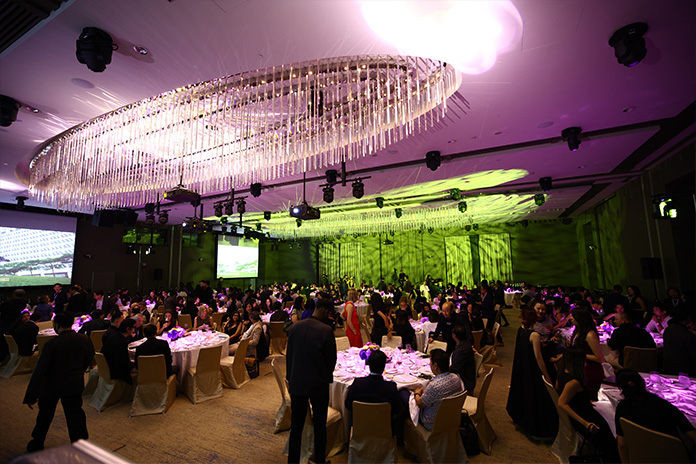
An Effie Award On Your Shelf?
One of the major awards on the industry’s calendar is The Effie Awards, which was founded in 1968 by the New York American Marketing Association. It highlights marketing excellence across a broad range of industries and specialties including digital, retail, and social good.
Today, the Effie organisation continues to lead global efforts to champion effective marketing and highlight industry talent, hosting awards in more than 55 countries and regions. The annual awards recognise impactful marketing, with an emphasis on advertising strategies that deliver measurable results.
The Singapore edition of the Effie Awards is presented by the Association of Advertising & Marketing Singapore (AAMS), a local beacon for marketing, creativity and performance.
ALSO READ: A Happy Space For A Healthy Brain
Effie Award Singapore Winners
Effie Awards Singapore 2024 featured in excess of 140 entries from close to 40 agencies.
There were entries in 40 categories, and medals were handed out to deserving winners in 31 categories on the night, at One Farrer Hotel.
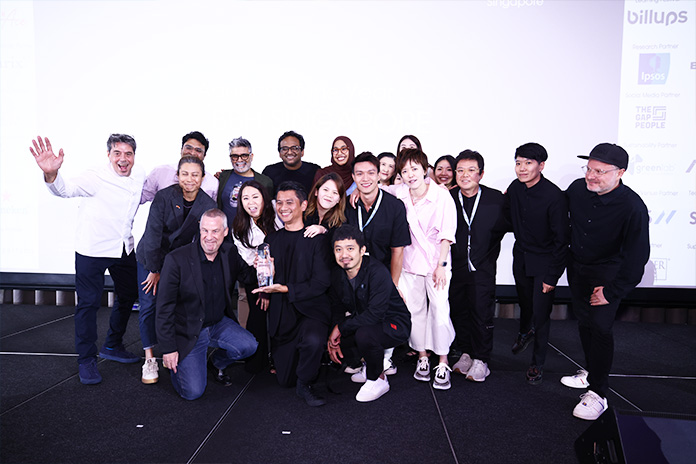
The 8 gold medals were won by Forsman & Bodenfors (2), Publicis Singapore (2), BBH Singapore (2), Leo Burnett Singapore and Ogilvy Singapore.
BBH Singapore grabbed the marquee awards — Agency of the Year, Brand/Marketer of the year (for its work on Income Insurance) and Planner of the Year (Cheryl Koh, who has since left the company and country).
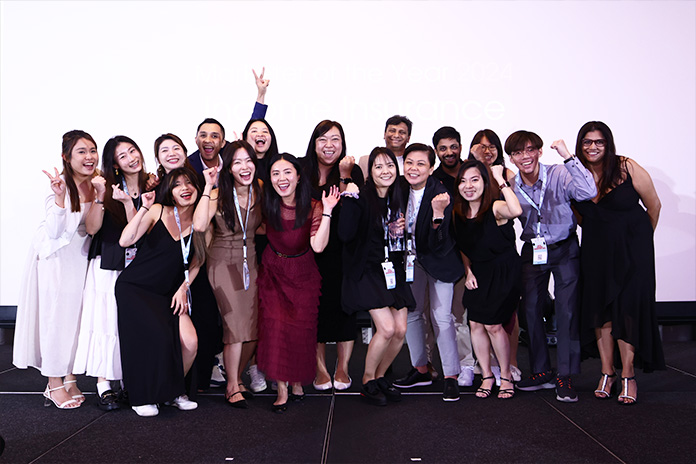
Lessons From The Practitioners
As a lead up to the gala awards dinner, a whole-day Effie Learning Festival was held with a full house in attendance. The Learning Festival is typically featured in regions or countries with a robust marketing industry. Through workshops, discussions and case studies, marketers offer a glimpse of the level of confluence and effort that goes into capturing the viewer’s attention.
Advertising teams from numerous industries shared their campaign insights, from community-centric organisations such as disabilities-focused SG Enable, to Singapore-based budget airline Scoot and the Changi Airport Group, to regional representation from international brands such as audio company, Harman International.
Case studies delved into the logic and thought processes behind advertisements, ranging from high-octane and borderline overwhelming, to deeply sentimental and reaching to pluck on the most intimate of emotional strings. Each case study presented before-and-after snapshots of how their campaigns had improved their supporting business in some way, be that a change in perspective by the target audience by way of surveys, or a boost in revenue and adoption.
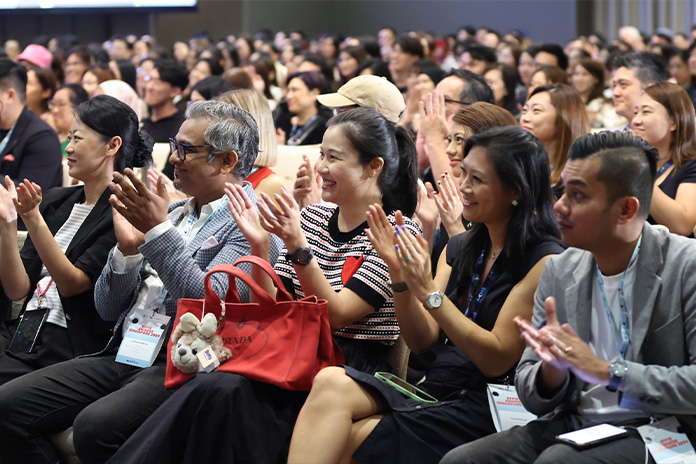
ALSO READ: Adapting Your Business Blueprint
Insights From Other Markets
Flying in for their presentations were Sonal Chharjerh, National Creative Director of Leo Burnett India and Rory Gallery, Chief Strategy Officer of Special in New Zealand.
Sonal shared her experience with the campaign for sanitary napkin brand, Whisper, which became a shout for more awareness of the challenges facing schoolgirls going through puberty in India.
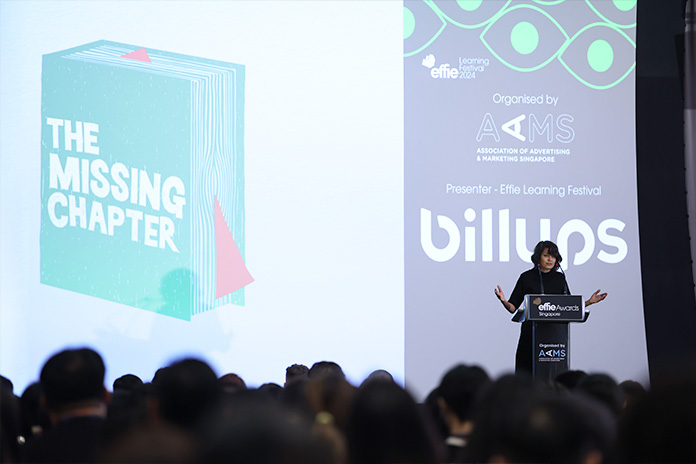
Rory’s presentations involved inserting an advertisement on the need for insurance by Partners Life in a popular television whodunnit series, The Brokenwood Mysteries, and the updating of Kiwibank’s image.
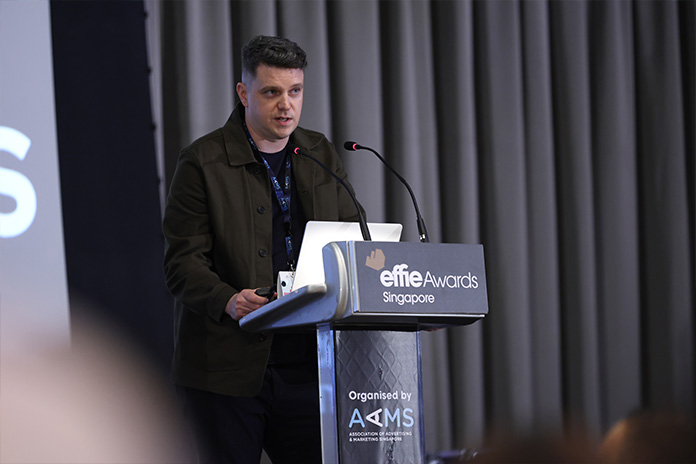
The presentations showcased the ability of advertisements to go beyond providing specific brand information, and initiating a further leap towards understanding the needs of society going through change.
The surprising learning for an outsider would be the extent to which the creations are interdepartmental; created by collaboration across disciplines, rather than coming purely from the minds of those with marketing-related expressions in their job title.
Also evident was the level of negotiations that must take place to convince stakeholders; the final advertisement being the culmination of numerous successful pitches.

Elite Standards
The judges, a panel of marketing experts, and awardees of the best presentation of the learning awards, revealed their expectations for top-tier presentations.
Sulin Lau, Head of Marketing and Brand at Grab, appreciated presentations with a tight story, while making their content fun to read. She praised examples of marketing and creativity working together to create value, giving special praise to the Changi Airport Group, who created a viral advertising campaign in preparation for Taylor Swift’s mini concert in Changi Airport’s Jewel.
Edward Pank, Managing Director at WARC APAC, attributed success to clear communication and storytelling.
The key component was the skill to know how to deliver a storyline in a concise fashion while retaining coherence.
Critically, the Effie Awards put an emphasis on campaigns that have created a measurable benefit. Edward believes the second component to a good presentation is the ability to state objectives and results clearly. He praised presentations which had tracked progress in the form of bar charts throughout the campaign.
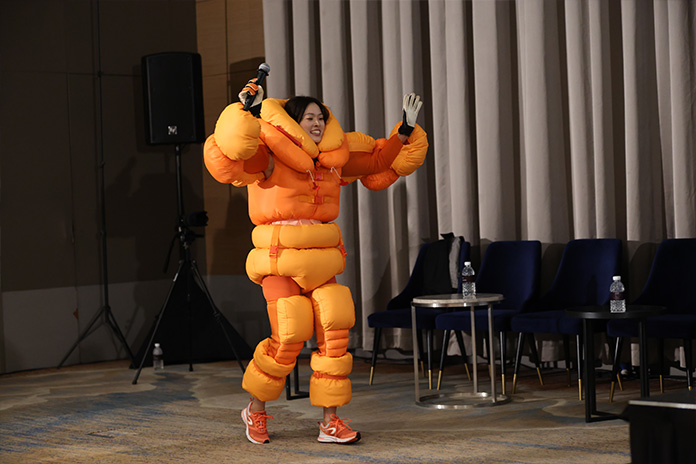
Kenneth Lim, Chief Marketing Officer at Singapore Tourism Board, praised zero spending miracles, referring to the campaigns that managed to move the needle, despite a lack of dedicated marketing budget.
Kenneth outlines how to deliver marketing campaigns with depth, “Understand the why, ask the question enough to understand why people of various demographics behave in a certain way, and allow this to shape ideas for the campaign.”
ALSO READ: Airlines Benefit From Industry Turbulence
Beyond the Business Imperative
Kenneth notes that success in marketing often comes to those who are able to use the prerequisite data to generate sharp insights. “To push the needle, there should be an element of risk-taking, but anchored on strong insights. There is then always a strong chance of success.”
Kenneth ultimately praised campaigns that were able to successfully tackle difficult questions.
The winner of best presentation, representatives from Forsman & Bodenfors with their campaign for Mandarin Oriental entitled ‘Letters to Neighbours’, was one such zero-budget miracle. The 36-year-old hotel was long overdue for renovation. The hotel’s interior decor had become outdated, while the brand resembled “an old man, trying to get back on its feet”. Renovations would take 6 months, and the brand asked itself, “can an icon afford to disappear?”
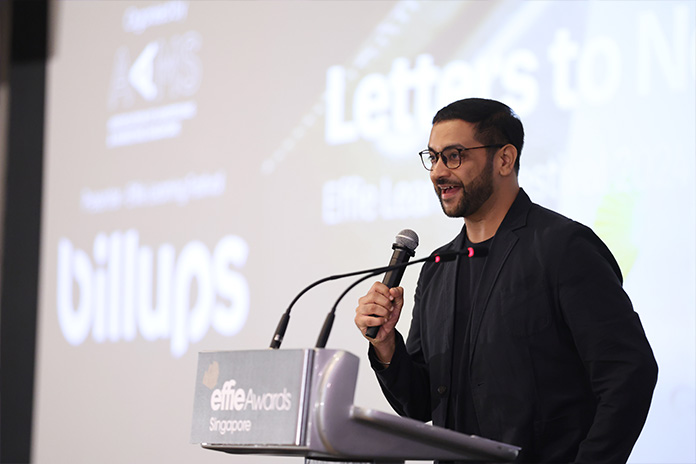
Siddhant Lahiri, Head of Strategy at Forsman & Bodenfors was candid with the audience on the brutality of the hospitality industry.
“In the hotel industry, it’s out of sight, out of mind. When booking a hotel, if the preferred option is unavailable, the majority would move on without thinking twice.”
Mandarin Oriental opted to take the risk of renovating and missing half a year’s income, while embracing the community spirit by sending letters to neighbouring hotels, asking them to take good care of customers in their absence.
The KPIs were clear, they would need to generate interest in their reopening to ensure they were fully booked once doors reopened.
“We seeded the letters through PR and social media. The idea had $0 in media investment, but reached over 100,000 people on social platforms, 90% of which were our competitors’ followers, and got over 20 million impressions, resulting in a fully pre-booked hotel for the entire opening week.”
The charming nature of their attitude, in light of the hotel’s vulnerability, and the resulting revenue and interest generated made this a successful campaign in all dimensions.
ALSO READ: Coach Your Leadership Back On Track
Be Purposeful
The learning festival was closed with comments from Rahat Kapur, editor of Campaign Asia Pacific, who frequently observes that campaigns lose focus on the ‘why’.
“There must be a purpose behind a campaign, but also a sense of emotional attachment to the work. Either simplistic or overly complex campaigns kill the sense of attachment to the represented brand.”
Rahat is also weary of the industry-wide shift towards a consumer-centric mindset, where all dignity is sacrificed to please onlookers.
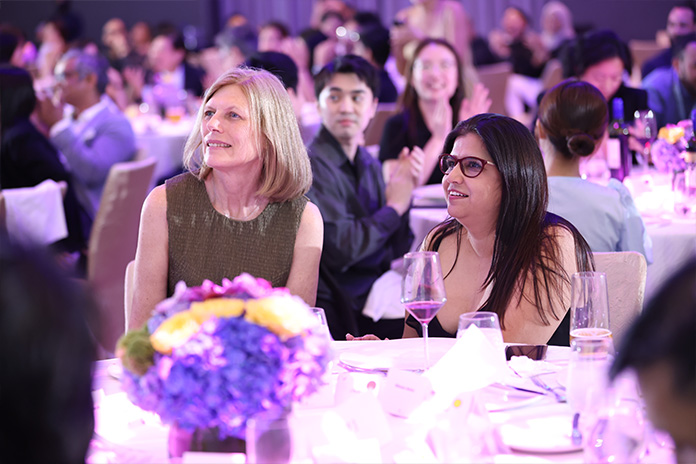
Many of the questions directed to the presenters concerned the campaign cost, rather than the content and strategy. “Ads used to be brand imperative, but now they are survival imperative. We must remember that cost and profit is not everything. The next generation of consumers is demanding a different kind of output.”
Going above the business imperative will always help a campaign stand above its competitors, in a society of compressed time and shortened attention spans.





















